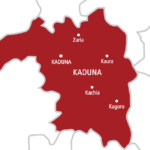A great deal of interest has been shown in Africa in recent years by the world’s high tech leaders. This is demonstrated by the visits to Africa of Brian Chesky (CEO, Airbnb) in 2015, Satya Nadella (CEO, Microsoft) in 2015, Mark Zuckerberg (CEO, Facebook) in 2016, Sundar Pichai (CEO, Google) in 2017, Jack Ma (Co-Founder of Alibaba Group) in 2017, twice in 2018, and once in 2019; Sergey Brin (Alphabet) in 2018, and Jack Dorsey (CEO, Twitter) in 2019. In particular, multiple visits, such as by Jack Ma, really suggest optimism.
Obviously, intelligence and talent are there in abundance in Africa, perhaps more so than anywhere else on earth. However, it’s a different matter when we talk of the ability of the continent to take advantage of the current focus it is receiving from internationally accomplished enterprises. (I can make the statements above because I have lived in the US for more than 30 years, in Asia for almost 5 years, and in Nigeria for more than 20 years. That is, I have met enough people in the world to be able to assess the potential of Africans, relative to that of others.) The issue pertains to some basic prerequisites for tech advancement.
Chief amongst these, with Nigeria as a typical example, is the dearth of the support system that tech needs. The most crucial is the poor infrastructure. Power, or electricity supply, represents the biggest problem. In Nigeria, even though governments after governments promise to solve the problem during election campaigns, so far no government in Nigeria has been able to deliver on this crucial metric of success. In fact, it appears as if the problem has been perpetually placed “under-the-rug.” “Appears,” because the government may be trying, but it does not seem that much has been accomplished. Sadly, without constant and affordable power supply, the potential of Africa to survive technologically will always be challenged, and high tech innovation as dreamt by the world tech leaders, will be quite elusive. Without adequate power, electricity supply will be expensive; as will products in general. Also, some businesses will simply not take off.
Another challenge faced by Africa, is the shortage of portable water supply. Industries that require water to operate are severely tested under the current condition of water supply.
The transportation system in many African countries is inadequate. Most of the roads are very bad, making it a challenge to move from one point to another; and the Ministry of Transportation doesn’t seem to have any clues as to how to solve the problems. As an example, I remember spending almost 15 hours to travel from Ibadan to Ikeja in Lagos, a distance of less than 70 miles. Some Christian service in a Redeem Camp on the Ibadan-Lagos Express Way was blamed for my experience, and I am told that my experience is not isolated, and that the government does not have a system in place to prevent the problem. Besides this, traffic laws are not adequately enforced, thereby enabling motorists to block free flow of traffic for hours on end. In addition, many of the roads are simply not motor-able, including roads that connect important towns. Furthermore, some of the roads are not safe to travel on because of armed robbers. Moreover, general security of the citizens is a challenge.
Although businesses, not governments, will need to provide the majority of employments to the citizens, the government does have the responsibility to solve the infrastructure problem. So far, many governments in Africa have not truly “stepped up to the plate.”
There are a few challenges to tech innovation in Africa which may somewhat be more insidious. The corruption problem in many African countries is very serious and it manifests in many ways that undermine advancements of all sorts. Nepotism, which is also very pervasive, has similar deleterious effects on human advancement.
It also seems that, compared to any other people in the world, Africans tend to be too nice as human beings. This trait tolerates excuses, which can hamper advancement. Africans also appear to be more laid-back, lax, complacent, and less likely to stick to firm rules and regulations. It sometimes appears in general, especially in sub-Saharan Africa, that Africans display some level of inferiority complex and less confidence when compared to people from the West. (By the way, I also saw this in Asia.)
There are also serious leadership and management problems. This can especially be found in governments, where, quite often, appointments are not made on the basis of qualification. In working with a few universities in Nigeria, I have found out that the vice-chancellors are usually incompetent, extremely parochial, and lack negotiation skills. The results include frequent student strikes, in-fighting and backbiting among lecturers, and significantly-delayed student graduation. The issue of poor negotiation skills and management is particularly insidious. Finally, something Africans need to learn – certainly from the US, – is the development of true passion in a focus area.
The extents to which some of the issues discussed above can be solved might as well represent a metric for measuring Africa’s ability to significantly contribute to future tech advancements – beyond consumption.
 Join Daily Trust WhatsApp Community For Quick Access To News and Happenings Around You.
Join Daily Trust WhatsApp Community For Quick Access To News and Happenings Around You.


